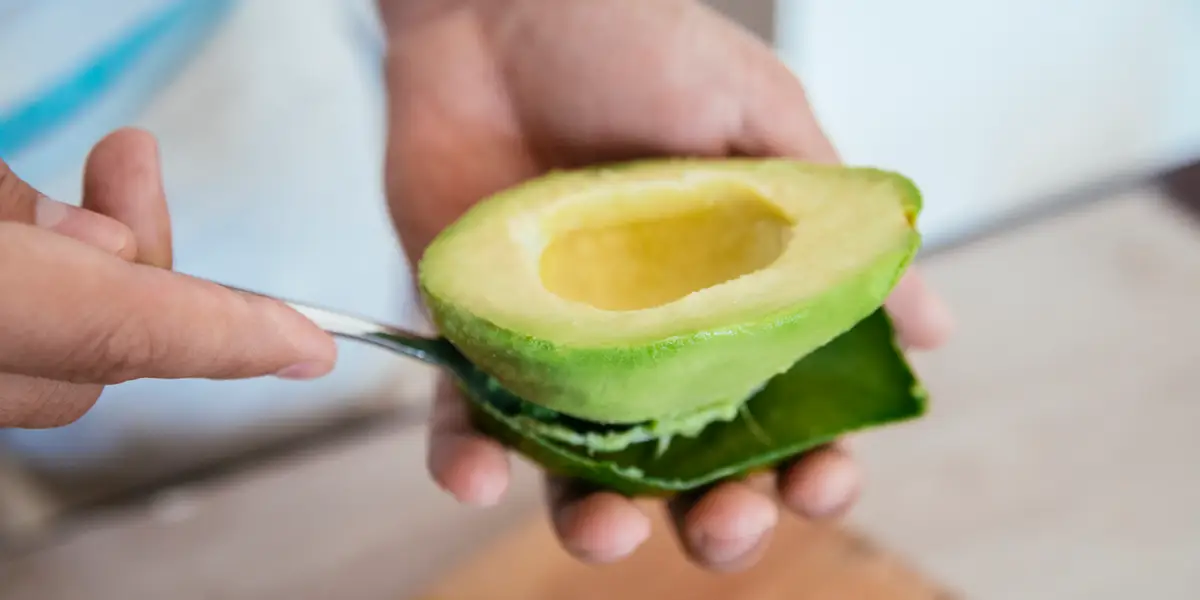Lowering cholesterol through diet is a vital strategy for improving heart health and reducing the risk of cardiovascular disease. By making informed choices about the foods you consume, you can significantly influence your cholesterol levels. In this guide, we will share effective dietary changes and habits that are proven to help lower cholesterol. Whether it’s incorporating specific cholesterol-lowering foods or adjusting your overall eating patterns, these tips will guide you toward a heart-healthier lifestyle.

Contents
- 1 How To Lower Cholesterol With Diet?
- 1.1 1. Increase Soluble Fiber Intake:
- 1.2 2. Eat More Fruits and Vegetables:
- 1.3 3. Choose Healthy Fats:
- 1.4 4. Limit Saturated Fats and Eliminate Trans Fats:
- 1.5 5. Eat More Plant-based Proteins:
- 1.6 6. Limit Your Intake of Cholesterol:
- 1.7 7. Incorporate Sterol and Stanol-fortified Foods:
- 1.8 8. Choose Whole Grains Over Refined:
- 1.9 9. Moderate Alcohol Intake:
- 1.10 10. Stay Physically Active:
- 2 Does My Diet Impact My Cholesterol?
- 3 Can Exercise Lower Cholesterol?
- 4 Frequently Asked Questions
- 4.1 How can I substantially lower my cholesterol through my diet?
- 4.2 Which are the worst foods for elevated cholesterol levels?
- 4.3 What should I consume daily to lower my cholesterol?
- 4.4 What is the “golden drink” that aids in lowering cholesterol?
- 4.5 Are bananas beneficial for managing cholesterol levels?
How To Lower Cholesterol With Diet?
Lowering cholesterol through dietary changes is a powerful approach to enhancing heart health and reducing the risk of cardiovascular diseases. Here are practical and effective strategies to help you manage and lower your cholesterol levels through diet:
1. Increase Soluble Fiber Intake:
Soluble fiber reduces the absorption of cholesterol into your bloodstream. Foods rich in soluble fiber include oats, beans, lentils, brussels sprouts, apples, and pears. Incorporating these foods into your diet can help reduce both total cholesterol and LDL cholesterol (the “bad” cholesterol).
2. Eat More Fruits and Vegetables:
Fruits and vegetables are rich in dietary fiber, antioxidants, and phytochemicals that can help lower cholesterol levels and improve heart health. Aim for at least five servings of fruits and vegetables each day to get the maximum benefits.
3. Choose Healthy Fats:
Not all fats are bad for cholesterol. Monounsaturated and polyunsaturated fats can actually help reduce LDL cholesterol levels. Include sources of healthy fats in your diet, such as avocados, olive oil, nuts, and fatty fish like salmon and mackerel, which are high in omega-3 fatty acids.
4. Limit Saturated Fats and Eliminate Trans Fats:
Saturated fats, found in red meat and full-fat dairy products, can raise your cholesterol levels. Limit your intake of these fats and avoid trans fats altogether, which are often found in margarines and store-bought cookies, crackers, and cakes. Check labels for “partially hydrogenated fats,” a sign that the food contains trans fats.

5. Eat More Plant-based Proteins:
Replace some of the meat in your diet with plant-based proteins that have been shown to aid in lowering cholesterol. Examples include lentils, chickpeas, and quinoa. These options are not only good for your cholesterol but also for your overall health.
6. Limit Your Intake of Cholesterol:
Foods high in cholesterol, such as fatty meats and high-fat dairy products, can raise blood cholesterol levels, especially in people who are more sensitive to dietary cholesterol. Opt for lean cuts of meat and switch to low-fat or fat-free dairy products.
7. Incorporate Sterol and Stanol-fortified Foods:
Plant sterols and stanols can help prevent the absorption of cholesterol. These substances are added to products like margarine spreads, juices, and yogurts. Regular consumption of foods fortified with sterols and stanols can significantly lower LDL cholesterol.
8. Choose Whole Grains Over Refined:
Whole grains provide more fiber, which has been shown to lower cholesterol levels and provide a feeling of fullness, which helps with weight management. Choose whole-grain bread, brown rice, and whole-grain pasta instead of their white, refined counterparts.
9. Moderate Alcohol Intake:
Moderate consumption of alcohol has been linked with higher levels of HDL cholesterol (the “good” cholesterol). However, the benefit isn’t strong enough to recommend alcohol for anyone who doesn’t already drink. If you drink alcohol, do so in moderation.
10. Stay Physically Active:
While not a dietary tip, combining regular physical activity with a healthy diet can multiply the benefits. Exercise can help raise HDL cholesterol, the “good” cholesterol, while helping you maintain a healthy weight and lower your overall cholesterol.
Does My Diet Impact My Cholesterol?
Yes, your diet can significantly impact your cholesterol levels. Here’s how:

- Dietary Cholesterol: While some foods contain cholesterol, it’s the saturated and trans fats that have a greater influence on your blood cholesterol levels.
- Saturated Fat: Found in animal products like red meat, full-fat dairy, and some processed foods. High intake of saturated fat can raise your “bad” LDL cholesterol and lower your “good” HDL cholesterol.
- Trans Fat: Found in some commercially baked goods, fried foods, and hydrogenated vegetable oils. Trans fats are particularly harmful as they raise both LDL and lower HDL cholesterol.
- Healthy Fats: Unsaturated fats, like those found in olive oil, avocados, and fatty fish, can actually help improve your cholesterol profile. They can raise HDL cholesterol and may slightly lower LDL cholesterol.
Can Exercise Lower Cholesterol?
Yes, exercise can be a powerful tool for lowering cholesterol, particularly your “bad” LDL cholesterol, and improving your overall cholesterol profile. Here’s a breakdown of how exercise works:

Mechanisms:
- HDL Increase: Regular exercise promotes the production of HDL, the “good” cholesterol. HDL helps remove LDL cholesterol from your arteries and transport it back to the liver for elimination.
- LDL Decrease: Exercise may help decrease the production of LDL cholesterol by your liver.
- Triglyceride Reduction: Exercise can also help lower triglyceride levels, another type of fat in your blood. High triglycerides can contribute to heart disease.
Benefits:
- Improved Overall Cholesterol Profile: By increasing HDL and potentially lowering LDL, exercise can create a more balanced cholesterol profile, reducing your risk of heart disease and stroke.
- Weight Management: Exercise can help you maintain a healthy weight or lose excess weight, which can further improve your cholesterol levels.
- Enhanced Insulin Sensitivity: Regular physical activity can improve your body’s sensitivity to insulin, a hormone that regulates blood sugar levels. This can indirectly benefit cholesterol levels.
Exercise Recommendations:
- Aim for at least 150 minutes of moderate-intensity aerobic exercise or 75 minutes of vigorous-intensity aerobic exercise per week. Moderate-intensity exercise leaves you slightly out of breath and able to carry on a conversation.
- Strength training: Include strength training exercises at least twice a week to target major muscle groups. This can help build muscle mass, which can further boost your metabolism and improve cholesterol levels.
Frequently Asked Questions
How can I substantially lower my cholesterol through my diet?
Eliminating saturated fats and trans fats from your diet can drastically lower your cholesterol. Such fats are found primarily in red meat and dairy products. Incorporating foods rich in omega-3 fatty acids, soluble fiber, and whey protein will also assist in managing your cholesterol levels.
Which are the worst foods for elevated cholesterol levels?
The worst food items for high cholesterol, due to their high saturated fats content, include red meat, like beef, pork, lamb, and processed meats like sausages. Other foods you should avoid include full-fat dairy products, baked goods, and sweets.
What should I consume daily to lower my cholesterol?
To lower LDL or “bad cholesterol” levels, adopt a diet that includes fruits, vegetables, whole grains, beans, and beneficial fats. Maintaining a diet rich in these foods can not only reduce cholesterol levels, but also bring additional health benefits.
What is the “golden drink” that aids in lowering cholesterol?
Commonly known as turmeric milk or golden milk, this Indian beverage is gaining popularity in Western cultures due to its potential health benefits, including reducing cholesterol.
Are bananas beneficial for managing cholesterol levels?
Yes, bananas as well as other fruits like avocados, apples, and oranges, are beneficial in managing cholesterol levels due to their high soluble fiber content, which helps lower LDL or “bad cholesterol.” A healthy balance of cholesterol is essential to our overall health.

Hello, I’m Ravindra. Over the years, I’ve immersed myself deeply into the world of fitness and health, transforming both my body and mind. Writing has allowed me to share my journey, insights, and expertise with those just starting out and seasoned fitness enthusiasts alike. Beyond just routines and diets, I believe in inspiring others to adopt a holistic approach to well-being.
